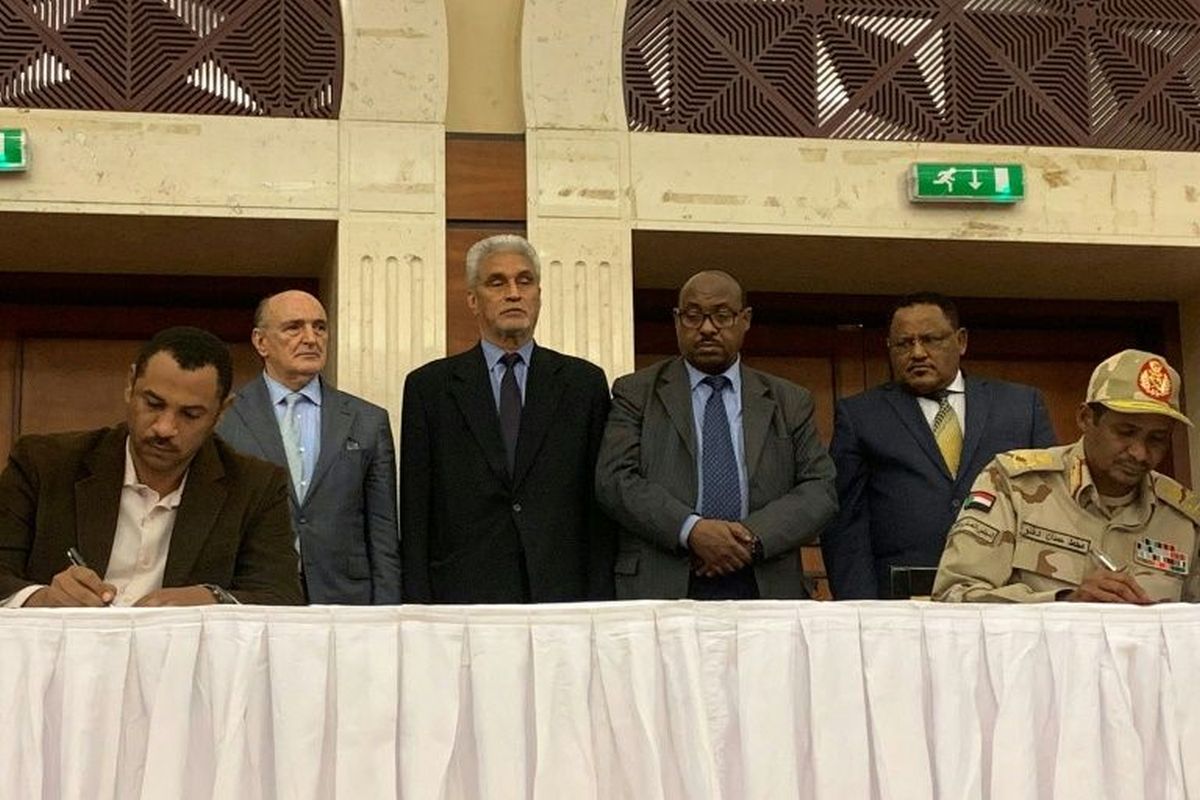Sudan’s protesters and ruling generals Wednesday inked a deal that aims to install a civilian administration, a key demand of demonstrators since president Omar al-Bashir was deposed in a coup three months ago.
The move loosens a deadlock that has gripped the country, following nationwide mass protests that began against Bashir in December but then continued after a military council ousted him on April 11.
Advertisement
The deputy chief of the military council General Mohamed Hamdan Dagalo — who initialled the deal on behalf of the generals on Wednesday — told AFP the agreement was a “historic moment” for Sudan.
It has “opened a new and promising era of partnership between the armed forces, RSF (Rapid Support Forces) and leaders of the glorious Sudanese revolution,” Dagalo said after he had put pen to paper.
Dagalo also heads the RSF, a feared paramilitary organisation that has its origins in the Janjaweed militias unleashed against African rebels during the early 2000s in Darfur.
Ibrahim al-Amin, a key protest leader, confirmed “today, we completed the political declaration.”
Intense talks took place through the night over details of the political declaration at a luxury hotel on the bank of the Nile river in the capital, an AFP correspondent reported.
As the generals stepped out of the hall after the inking of the deal, a small crowd — including women waving the national flag — chanted “civilian rule, civilian rule.”
The landmark power-sharing deal, which was agreed in principle on July 5, has been brokered by African Union and Ethiopian mediators after weeks of stop-start negotiations between the protest umbrella group and ruling generals.
“The Transitional Military Council and the Alliance for Freedom and Change have reached a very important agreement that constitutes a crucial step towards a comprehensive reconciliation,” said African Union mediator Mohamed El Hacen Lebatt.
– Immunity for generals? –
The accord stipulates that a new transitional civilian-military ruling body be established, in a bid to end the country’s months-long political crisis.
This governing body will be comprised of six civilians and five military representatives.











